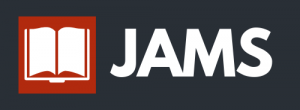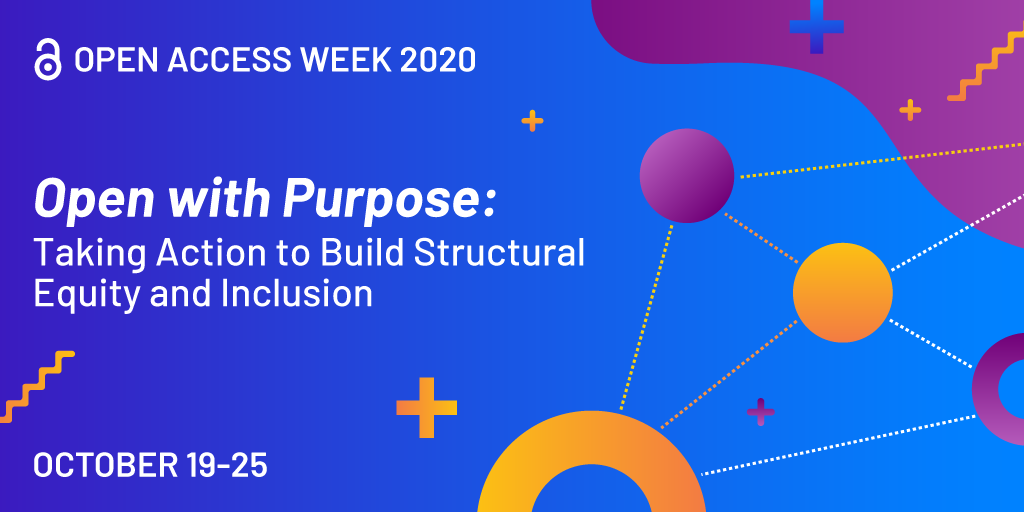This week I had the opportunity to talk to Billy Tringali. If you don’t know Billy he worked in the Scholarly Commons as a graduate assistant from 2016-2018 and now works as a Law Librarian for Outreach at Emory University. Our conversation this week was about a passion project that he started during his time here at Illinois. Billy is the founding editor-in-chief of a brand new open access journal, The Journal of Anime and Manga Studies (JAMS). The first volume of JAMS came out recently so be sure to go take a look!

How does JAMS fit into a broader scholarly conversation? What gaps in scholarship are you addressing with this journal?
JAMS is currently the only open-access journal solely dedicated to publishing scholarly articles on anime, manga, cosplay, and their fandoms. While there are other journals which publish works about anime, like the incredible Mechademia, they are not open-access. Anime and manga studies is such a diverse field, and there is a lot out there being published. The goal of the Journal of Anime and Manga Studies is to provide a space for academics, students, and independent researchers examining the field of anime, manga, cosplay, and fandom studies to access high-quality research about these topics and share their research with others.
Tell us about your experience working with the Illinois Open Publishing Network (IOPN). What advice do you have for scholars interested in using this resource?
Working with IOPN has been a dream. Such a qualified, helpful, and truly brilliant staff. If you want to use this resource (and why wouldn’t you?!) come prepared to work! JAMS went through a one-year long notes process before being accepted into IOPN, and they don’t publish low-quality work.
Did you always envision the journal as open access? Why or why not?
There was no point in time in which JAMS wasn’t going to be open-access. While I was attending the University of Illinois at Urbana-Champaign, I had more than 14 million items at my fingertips. It was amazing. So much knowledge just a click away. In my coursework I learned how imperative information access is to scholarship, and I could only imagine how difficult it must be for scholars at smaller universities and outside the academe to find peer-reviewed research on this subject. JAMS aims to be part of that solution by publishing work that can be accessed by anyone, anywhere.
What unique challenges do you encounter as a new open access journal that you were not expecting?
The truly worst (and also funniest, looking back) was the professor who doubled-over in laughter when I told them I was trying to start up an open-access journal about anime and manga. But for every person that scoffed at JAMS, there was another who was so interested and excited to see this project succeed. A wonderful lesson to learn as a young scholar was to persevere!
What are the advantages for scholars who publish their work under a creative commons license?
Publishing under a Creative Commons license allows your work to be seen by everyone. It’s as simple as that. Do you want people to see what you’ve made? Then a Creative Commons license is a great choice!
I know Anime and Manga studies is a small area for academic research in the United States. How has this impacted the peer review process?
It’s actually not all that small! There are a wide variety of researchers doing work on anime and manga studies, they just all happen to be spread out among a number of fields! We have peer reviewers from a diverse set of backgrounds – from education, to information science, to fandom studies – who are all so passionate about anime and manga studies. Our peer reviewers do an incredible job strengthening the papers submitted to JAMS, and I am incredibly grateful for their willingness to dedicate time to this journal.
What are your hopes for the future of this publication?
(Combining this the question that was above)
I mention this in my “Welcome from the Editor-in-Chief”, and I think I said it best there:
“I hope the Journal of Anime and Manga Studiescan exist as a space that publishes high-quality scholarship about anime, manga, cosplay, and their fandoms. I hope that JAMS can bring visibility to the deeper meanings, understandings, and cultural significance of anime, manga, cosplay, and their fandoms. I hope that, in making JAMS open-access scholarship about anime and manga can be accessible to everyone, regardless of university affiliation. As Aramata Hiroshi and the Kyoto International Museum of Manga imbued a burning desire in me, I hope that the papers you will read in this journal imbue the same sense in you to do all you can for this fantastic art form.”






